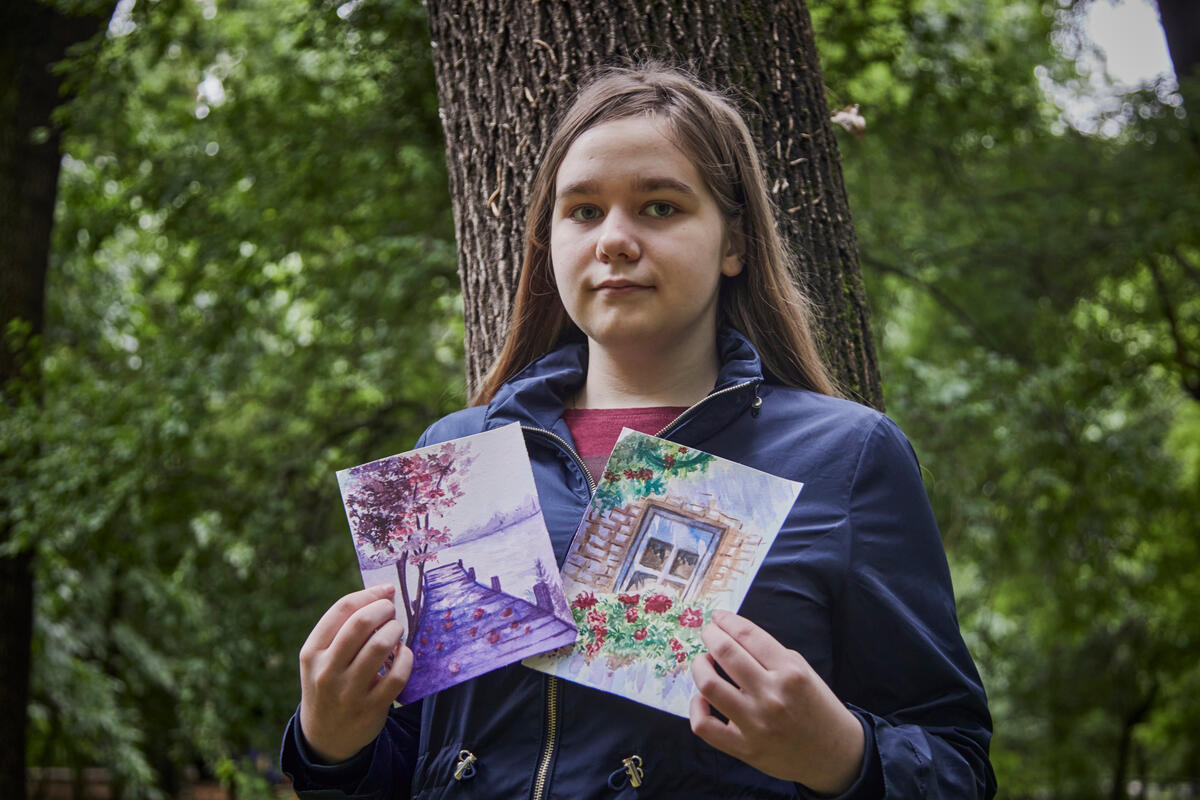A facility in Romania provides refugees with a gateway to a new life
A facility in Romania provides refugees with a gateway to a new life

TIMISOARA, Romania, 19 August (UNHCR) - After almost two years in a harsh desert camp on the Egyptian-Libyan border, Mohamed arrived in Timisoara's Emergency Transit Centre. Although the ETC is only a temporary stop while Mohamed, a 28-year-old Sudanese, and other refugees await moves to new homes in other countries, it is a welcome santuary.
"I was so happy to get here," said Mohamed, a former veterinary student forced to leave his family behind in the war-torn Darfur region of Sudan. "I felt safe! There is water, food and a peaceful place to sleep."
Timisoara gives refugees more than life's necessities. Mohamed now attends UNHCR-funded English classes in preparation for his imminent resettlement to the U.S. state of Iowa.
The ETC is a safe-haven where refugees are assured six-months protection while they complete the procedures necessary for resettlement, including interviews with officials from countries accepting them; providing photographs and fingerprints; undergoing medical checks and psychological counselling; and learning the languages of their new homes.
While UNHCR covers most of the costs -- including food, clothing, personal items and utilities -- the Romanian government provides the accommodation and security.
"We are here to offer support and we are even proud to offer this support," said the ETC's Romanian administrator Filimon Pitea, who remembers the not-so-distant past when waves of Romanians fled communism to seek a new start elsewhere. "We have a sense of fulfillment. It is a good feeling to know that we are doing something to help our fellow human beings."
The centre in western Romania can accommodate up to 200 people at a time -- in July there were 164 refugees from Sudan, Iraq, Eritrea,, and Somalia housed in the ETC, with more arrivals expected out of Syria.
Although the ETC offers refugees many things, it is not a home. Residents can leave only if escorted by social workers, such as representatives of the social work NGO Generatia Tanara (GRT) who accompany residents to shops, the cinema and even hairdressers in the nearby city of Timisoara.
Since it was established, the Timisoara ETC has provided temporary shelter to a total of 1,230 refugees - with 1,085 finding new homes in resettlement countries such as the USA, United Kingdom, the Netherlands, Canada, Sweden, Finland, Germany, Australia and Norway.
Ali Osman, a 20-year-old Eritrean, spent two terrifying years in a Yemeni jail with other Eritreans for illegal entry before UNHCR was able to gain their release. "I was in prison with murderers," Ali said as he headed to a Finnish class to prepare for a new life in the Nordic country.
The GTR's Andrea Lampinen offers trauma counselling. She says the youngest refugees seem to have the easiest time adapting to a new life but all the people who come to the ETC are "real-life heroes" because of what they've endured and overcome.
"For absolutely all of those here, the past is painful and traumatic," Lampinen said. "I try to convince them that life can be better and that it is largely in their hands what they decide to do from now on."
According to Lampinen, the question is: "Will they continue to be victims or will they take hold of their lives and fight for themselves, for their families?" For many refugees, personal hardship is not over.
For Mohamed, worries about his family and his past are never far away. "I know I have to look forward to the future and leave the past," he said, "but that's hard. I just want to cry inside sometimes."
By Andreea Anca in Timisoara, Romania








